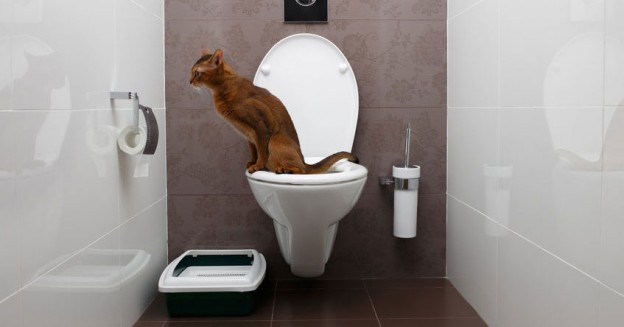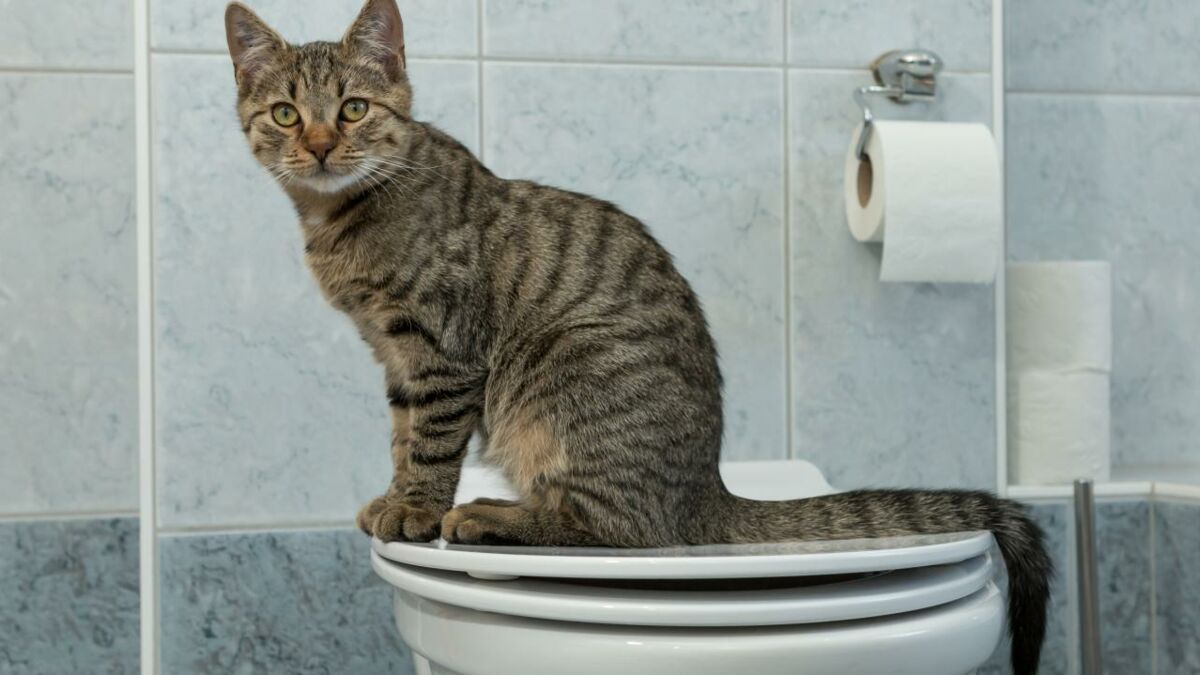Hazards of Flushing Cat Poop Down Your Toilet - Avoid Potential Problems
Hazards of Flushing Cat Poop Down Your Toilet - Avoid Potential Problems
Blog Article
What are your beliefs on Can You Flush Cat Poo or Litter Down the Toilet??

Intro
As feline proprietors, it's vital to bear in mind just how we deal with our feline buddies' waste. While it may appear hassle-free to flush cat poop down the toilet, this technique can have destructive repercussions for both the environment and human health.
Alternatives to Flushing
The good news is, there are much safer and much more accountable ways to take care of feline poop. Consider the adhering to alternatives:
1. Scoop and Dispose in Trash
One of the most typical approach of taking care of feline poop is to scoop it right into a naturally degradable bag and toss it in the trash. Make sure to make use of a devoted litter scoop and take care of the waste quickly.
2. Usage Biodegradable Litter
Opt for naturally degradable feline trash made from products such as corn or wheat. These clutters are environmentally friendly and can be safely taken care of in the trash.
3. Bury in the Yard
If you have a lawn, take into consideration burying feline waste in a marked location away from veggie gardens and water sources. Be sure to dig deep sufficient to avoid contamination of groundwater.
4. Set Up a Pet Waste Disposal System
Purchase a family pet garbage disposal system particularly created for cat waste. These systems use enzymes to break down the waste, decreasing odor and ecological influence.
Health and wellness Risks
In addition to environmental concerns, purging feline waste can also pose wellness risks to human beings. Feline feces may have Toxoplasma gondii, a bloodsucker that can cause toxoplasmosis-- a possibly serious illness, specifically for pregnant females and individuals with damaged immune systems.
Environmental Impact
Purging feline poop presents damaging pathogens and parasites right into the supply of water, posturing a considerable threat to aquatic environments. These contaminants can adversely impact marine life and concession water quality.
Conclusion
Accountable pet dog ownership extends beyond supplying food and sanctuary-- it additionally involves proper waste monitoring. By avoiding flushing cat poop down the toilet and choosing alternate disposal techniques, we can lessen our environmental footprint and safeguard human health and wellness.
Why Can’t I Flush Cat Poop?
It Spreads a Parasite
Cats are frequently infected with a parasite called toxoplasma gondii. The parasite causes an infection called toxoplasmosis. It is usually harmless to cats. The parasite only uses cat poop as a host for its eggs. Otherwise, the cat’s immune system usually keeps the infection at low enough levels to maintain its own health. But it does not stop the develop of eggs. These eggs are tiny and surprisingly tough. They may survive for a year before they begin to grow. But that’s the problem.
Our wastewater system is not designed to deal with toxoplasmosis eggs. Instead, most eggs will flush from your toilet into sewers and wastewater management plants. After the sewage is treated for many other harmful things in it, it is typically released into local rivers, lakes, or oceans. Here, the toxoplasmosis eggs can find new hosts, including starfish, crabs, otters, and many other wildlife. For many, this is a significant risk to their health. Toxoplasmosis can also end up infecting water sources that are important for agriculture, which means our deer, pigs, and sheep can get infected too.
Is There Risk to Humans?
There can be a risk to human life from flushing cat poop down the toilet. If you do so, the parasites from your cat’s poop can end up in shellfish, game animals, or livestock. If this meat is then served raw or undercooked, the people who eat it can get sick.
In fact, according to the CDC, 40 million people in the United States are infected with toxoplasma gondii. They get it from exposure to infected seafood, or from some kind of cat poop contamination, like drinking from a stream that is contaminated or touching anything that has come into contact with cat poop. That includes just cleaning a cat litter box.
Most people who get infected with these parasites will not develop any symptoms. However, for pregnant women or for those with compromised immune systems, the parasite can cause severe health problems.
How to Handle Cat Poop
The best way to handle cat poop is actually to clean the box more often. The eggs that the parasite sheds will not become active until one to five days after the cat poops. That means that if you clean daily, you’re much less likely to come into direct contact with infectious eggs.
That said, always dispose of cat poop in the garbage and not down the toilet. Wash your hands before and after you clean the litter box, and bring the bag of poop right outside to your garbage bins.
https://trenchlesssolutionsusa.com/why-cant-i-flush-cat-poop/

Hopefully you liked our section on Don’t flush cat feces down the toilet. Thanks for spending some time to read through our article post. Enjoyed reading our blog? Please share it. Let another person find it. I praise you for your time. Visit again soon.
Call Today Report this page